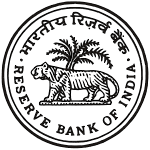C. Rangarajan
| C. Rangarajan | |
|---|---|
| Chairman of the Prime Minister's Economic Advisory Council | |
| Incumbent | |
| Assumed office August 2009 | |
| Member, Rajya Sabha | |
| In office August 2008 – August 2009 | |
| chairman of the Prime Minister's Economic Advisory Council | |
| In office 2005–2008 | |
| Succeeded by | Prof. Suresh D. Tendulkar |
| Chairman of the Twelfth Finance Commission of India | |
| In office 2003–2004 | |
| Governor of Andhra Pradesh | |
| In office 24 November 1997 – 3 January 2003 | |
| Governor of Reserve Bank of India | |
| In office 22 December 1992 – November 1997 | |
| Preceded by | S. Venkitaramanan |
| Succeeded by | Dr. Bimal Jalan |
| Member of Planning Commission of Government of India | |
| In office 21 August 1991 – 21 December 1992 | |
| Deputy Governor of Reserve Bank of India | |
| In office 12 February 1982 – 20 August 1991 | |
| Personal details | |
| Nationality | Indian |
| Political party | Independent |
| Alma mater | University of Madras University of Pennsylvania |
| Profession | Economist civil servant |
C. Rangarajan or Chakravarthi Rangarajan (born 1932) is an Indian economist and a distinguished former Member of Parliament and Ex-Governor of the Reserve Bank of India. He is the former Chairman of the Prime Minister's Economic Advisory Council, he resigned the day the UPA went out of power. He is also the Chairman of the Madras School of Economics, President of the Indian Statistical Institute and the Founding Chairman of the CR Rao Advanced Institute of Mathematics, Statistics and Computer Science. Chancellor of University of Hyderabad.
Early life
Rangarajan, a student of National College (Tiruchirappalli) between 1947 and 1949, graduated from Loyola College of the University of Madras in the commerce stream (where he was a contemporary of the Yale University economics professor T N Srinivasan). He later received his PhD in economics from the University of Pennsylvania in 1964. His thesis was titled "Variability of Demand Deposits".[1]
Career
Rangarajan taught at several institutions including the University of Pennsylvania and the IIM-A. He was a well known teacher of economics at IIMA for the postgraduate and the doctoral courses.His textbook on macro economics was used in business management schools.[2] He was awarded the title of Honorary Fellow of IIM-A in 1997.
In 2002, the Government of India awarded him the Padma Vibhushan, India's second highest civilian award.
He served as a Deputy Governor of the Reserve Bank of India from 1982 to 1991, after which he served as the Governor of the Reserve Bank of India between 22 December 1992 and 21 December 1997. He also served as the Governor of Andhra Pradesh from 24 November 1997 to 3 January 2003. After demitting that office, he took charge as the chairman of the Twelfth Finance Commission.
From 2005 onwards, he was the Chairman of the Prime Minister's Economic Advisory Council. In August 2008, he resigned as the Chairman of the Prime Minister's Economic Advisory Council and was nominated as a member of the Rajya Sabha.[3] He resigned from the Rajya Sabha in August 2009 and was re-appointed the Chairman of the Prime Minister's Economic Advisory Council.
While serving as the governor of Andhra Pradesh, he also received additional charges as governor of Odisha from 1998 to 1999 and as governor of Tamil Nadu from 2001 to 2002.[4] [5]
References
- ↑ "Variability of Demand Deposits". Retrieved 2 July 2012.
- ↑ Rangarajan, Chakravarthi; Dholakia,B (2001). Principles of Macroeconomics. Tata McGraw-Hill Education. ISBN 978-0-07-096581-2.
- ↑ "List of Governors". Reserve Bank of India. Retrieved 8 December 2006.
- ↑ "Brief History of Odisha Legislative Assembly Since 1937". ws.ori.nic.in. 2011. Retrieved 24 April 2012.
NAME OF THE GOVERNORS OF Odisha
- ↑ http://orissa.gov.in/e-magazine/orissaannualreference/OR-Annual-2009/pdf/405-418.pdf
External links
- A brief note on C. Rangarajan
- Rangarajan joins finance panel
- Dr.C.Rangarajan, Chairman Twelfth Finance Commission
- Governors of the Reserve Bank of India
- Economic Advisory Council
| Preceded by G. Ramanujam |
Dr C Rangarajan Governor of Andhra Pradesh 24 November 1997 – 3 January 2003 |
Succeeded by Surjit Singh Barnala |
| Preceded by K.V. Raghunatha Reddy |
Governor of Odisha Apr 1998– Nov 1999 |
Succeeded by M. M. Rajendran |
| Preceded by Justice M. Fathima Beevi |
Governor of Tamil Nadu 3 July 2001 – 18 January 2002 |
Succeeded by P. S. Ramamohan Rao |
| ||||||||||
|
